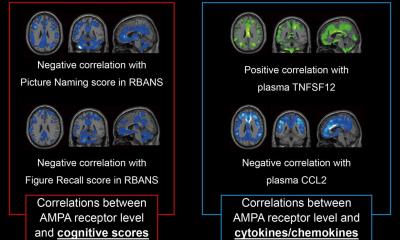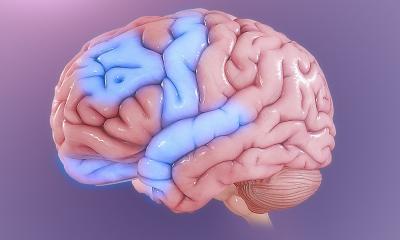Stress Research
Chronic stress neurons discovered
A novel population of neurons that are only activated following chronic stress is identified. Today, stress is part of everyday life. However, when stress is chronic it can lead to distressing illnesses such as depression and anxiety disorders. In their latest study, scientists at the Max Planck Institute of Psychiatry in Munich have identified a population of neurons in the hypothalamus that specifically mediate the response to chronic stress.

Everyone has experienced stress; it is a normal part of everyday life. We feel stressed when we know we have too much to do in the day, get stuck in traffic or have an important deadline to meet. We also feel stressed when we are worried about something e.g., money, job or family. The body automatically reacts to the stress by increasing heart rate, blood glucose, respiration and blood pressure. Many changes also happen in the brain, such as an increase in the level of fear and anxiety, changes in learning and memory, changes in our appetite and more. These spontaneous changes aim to improve our ability to cope with the stressful situation. However, if the stress is chronic i.e., the body is constantly reacting to stressful situations, and the brain response is not properly functioning, we can develop a physical or mental stress-related illness.
Scientists at the Max Planck Institute of Psychiatry in Munich are researching the pathways by which the brain translates stressors into the biological response and their regulation.
The hormonal response to stress is tightly regulated by a neuroendocrine system called the hypothalamic-pituitary-adrenal (HPA) axis. Following stress, the HPA axis becomes activated. Parvocellular neurons in the paraventricular nucleus (PVN) of the hypothalamus secrete corticotropin-releasing factor (CRF), which binds to receptors in the pituitary. This stimulates release of adrenocorticotropic hormone (ACTH) from the pituitary into the circulation. The circulating ACTH binds at the adrenal cortex stimulating the synthesis of glucocorticoids; cortisol in humans and corticosterone in rodents. Glucocorticoids are the downstream biological effector of the stress response. They perform a vast number of actions and also importantly provide negative feedback in the HPA axis to “switch it off”.
Now scientists at the Max Planck Institute of Psychiatry in Munich have identified another way that glucocorticoids can feedback. These latest research findings, published in the journal Nature Neuroscience, are set to change the way scientists understand the HPA axis. They discovered a novel population of neurons in the PVN that express the CRF type 1 receptor. “What was really interesting is that these PVN neurons increase how many receptors they express when there is a high level of glucocorticoids” says Assaf Ramot, first author of the study. “Our results suggest that in addition to the well-established negative feedback in the HPA system, there is also a positive feedback pathway”.
Director of the Max Planck Institute of Psychiatry and leading author of the study, Alon Chen explains “furthermore, we showed that this population of neurons are more active after the mice have been exposed to chronic stress than after exposure to acute stress. We believe these neurons are specifically “recruited” only after chronic stress”.
The authors hope that this exciting new discovery will help towards finding new treatments that target the mechanisms by which chronic stress causes stress-related illnesses such as depression and anxiety.
Source: Max Planck Institut
16.02.2017





